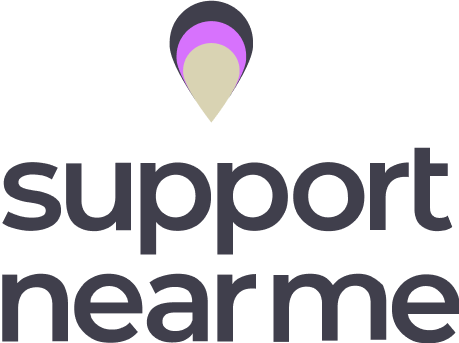what to know about treatment with keytruda

On this page:
Tips, tools, and additional information to help guide your treatment journey
When starting a new medication, it can be reassuring to know what to expect. Explore this page to help you or your care partner feel more confident in starting treatment with KEYTRUDA, including:
- What to expect on your first infusion
- What to know about your treatment schedule
- Side effects and when to speak up
- KEY+YOU for one-on-one support
KEY+YOU one-on-one phone support for people prescribed KEYTRUDA and their care partners
KEY+YOU representatives can provide access to:
- Educational resources and tools to help navigate your treatment journey
- Helpful information about KEYTRUDA
- Connections to resources and much more
To speak with a KEY+YOU representative, call 85-KEYTRUDA (855-398-7832) & press 2. Phone support is available from 8am - 8pm EST (Eastern Standard Time), Monday - Friday.
Support Near Me is a third-party website where people living with cancer can find local resources
These resources may help with the daily challenges of living with cancer, such as housing, food, transportation, and more.
Access to Support Near Me is licensed by Merck solely as a convenience for patients and caregivers. Merck does not control the content of this site and has not taken steps to verify the accuracy of the listing provided. The organizations listed on the site do not imply an endorsement or referral by Merck, nor do they signify the organizations' endorsement of Merck or its products.

What to expect during your first infusion appointment
A nurse will likely give you the infusion by placing an intravenous (IV) line into your arm. They can also answer any questions you may have. Each infusion of KEYTRUDA is given over 30 minutes. Remember that your doctor or the infusion center may ask you to be there longer than it takes to receive your infusion.
Learn more about how KEYTRUDA is given at an infusion center.
For more information, call 85-KEYTRUDA (855-398-7832) and press 2 to speak with a representative.
Note: During your infusions, make sure to pay attention to how you are feeling. Sometimes bruising, irritation, or other reactions can occur. If you are in pain or feel something out of the ordinary, make sure to tell the nurse or someone at the infusion center right away.
What should I bring to my infusion?
Items for staff members:
- Any paperwork you need to fill out or have already filled out
- A list of all the current medications you’re taking, including over the counter, prescription medications or supplements
- Insurance cards
Items for your comfort:
- A water bottle to help you stay hydrated
- Healthy snacks
- A pillow and/or blanket
- Charging devices
What should I wear to my infusion?
Wearing the right clothes to your infusion can help you feel more at ease during your appointment.
Be sure to dress in:
- Comfortable clothes
- Shirts with sleeves that can be rolled up so your nurse can put in an intravenous (IV) line or get to your port
- Layers, in case your infusion center is too hot or cold for your liking
Understanding your treatment schedule
Because infusions happen every 3 or every 6 weeks*, it’s important to create a routine around your treatment. Your routine can include:
- Using reminders on your phone or calendar to go to your infusions
- Scheduling infusions on the same day of the week
- Keeping track of other appointments, such as scans or bloodwork
- Setting a time to write down how you are feeling and contacting your local counseling support services, as needed
- Asking friends or family to help with scheduling your infusions
*In children, KEYTRUDA is usually given every 3 weeks.
Remember, staying consistent is key.
It’s important to create a routine that’s easy to work with so you can stay on track with your infusions.
Understanding side effects with KEYTRUDA
Throughout treatment, side effects may happen. That’s why you should know about the possible side effects and talk to your doctor immediately about what you can do to help manage them.
Side effects can happen at any time during your treatment.
Knowing what the side effects are can help you or your care partner more easily recognize them if you start to feel any of the symptoms.
When should I speak up about side effects?
If you have any changes in the way you feel, it’s important to discuss those changes with your health care team.
- Tell your doctor if you have any side effect that bothers you or that does not go away.
- Make sure to upload your symptom tracker to your doctor’s patient portal, so you and your doctor can keep an eye on any side effects you may experience and how often they occur.
- Getting medical treatment right away may help keep these problems from becoming more serious.
Write down all physical and emotional changes
Even before you get your first infusion, write down how you feel physically and emotionally. This will help you recognize if you start to feel anything out of the ordinary. Keep these things in mind:
- Consider downloading an app to your phone by searching key phrases like “side effects tracker” or download and print the Symptom Tracker (PDF) to make tracking easy
- Talk to your doctor about what you can expect from treatment
- Write down how you are feeling early and often (before, during, after, and even in between infusions)
Who is on my cancer care team?
Learn more about the people that make up your care team—from oncologists and surgeons to social workers and dietitians. This guide can be saved or printed.
A Guide to Your Cancer Care Team (PDF)Learn more about how to find the best fit for your support community. This contact list can be saved or printed.
Build Your Support Team (PDF)